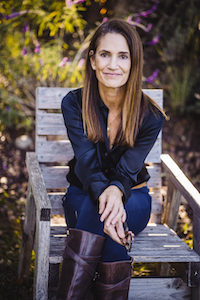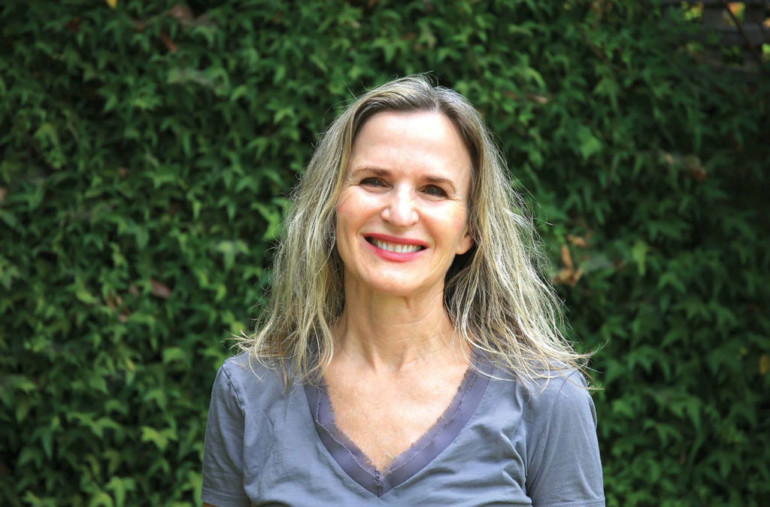REBECCA FOUST, MARIN County’s current poet laureate, has spent a lifetime breaking the mold. Growing up in the working class manufacturing town of Altoona, Pennsylvania, she was first in her family to go to college. After earning scholarships to attend Smith College and Stanford University Law School, she went into private law practice and then, while raising a son who had Asperger’s, became an advocate for children with autism.
After quietly writing unpublished poems in her walk-in closet while she raised her young children, Foust enrolled in the MFA degree program at Warren Wilson College at age 50. She emerged as a poet and over the next decade she published five prize-winning collections, earned fellowships from The Frost Place, MacDowell, Sewanee and West Chester University Poetry Conference, and won kudos including the James Hearst Poetry Prize, the American Literary Review Fiction Award, and the Constance Rooke Prize for Creative Nonfiction. Foust writes a weekly poetry column for the national magazine Women’s Voices for Change and has served on the Marin Poetry Center Board of Directors since 2008.
Her Marin poet laureate title spans from 2017 to 2019.
True to form, Foust breaks the poet mold as well. This is no quietly ruminating bard delivering highfalutin words from the shelter of an idyllic retreat. On the contrary, Foust has used her role more socially, to encourage people who, like her, have had few role models for pursuing a literary life; she’s also promoting poetry as a mode of expression for all.
“Poetry is a sacred space — church, a hospital, a hospice bed — offering a safe place for our most private, urgent and otherwise ineffable expressions,” she said in her first public laureate remarks. Her schedule for spreading this message is robust, full of regular appearances in schools, libraries, community workshops, retirement homes, rotary meetings, festivals, the Marin County Fair — anywhere she can endorse the use of language and narrative as a path to personal empowerment and social justice.
Tell me about your mission as Marin County poet laureate.
I got to reinvent this position, as each of the four poet laureates before me has been able to do. I am floored by the support I’ve gotten and the leeway I’ve been given. I’m so grateful for founder Richard Brown and the Marin County Free Library, as the program is administered by and under their auspices. The only way I could envision taking this position and spending this time was if I got to do some good in the world. My poet laureate project is “Poetry as Sanctuary,” which ties in with California’s status as a sanctuary state. Perhaps the most important service poetry can provide now is as a respite from or a way to respond to current political events, and I very much had in mind bringing attention to our immigrant community here in Marin County.
What do the programs you’ve created look like on the ground?
I established a partnership with ForWords Literary Lab, a nonprofit in Montecito Plaza in San Rafael, with a mission to use literature to improve the daily lives of underprivileged children. Because of the location, I work primarily with immigrant children from Central and South America, but ForWords serves all underprivileged children. I do workshops, spend time in the classroom and organize reading opportunities across the county — at Rebound Bookstore, Fairfax Library, the Marin County Fair.
Something else I’ve done is organize open mics at our libraries around themes — an open mic on immigration at the Civic Center library, one on peace at the Corte Madera library, and one on gender at the Mill Valley library. Those were mostly very well-attended. I’ve created a Marin County Poet Laureate Facebook page in English and one in Spanish, and I am diligent about taking photos and updating that page.
What are some of the surprising things about your tenure so far?
I’ve had a chance to connect with sectors of the community I didn’t even know existed, like the International Society of Sufism, a group who invited me to their festival, or there’s a women’s Rotary Club called the Tuesday Breakfast Club. I’ve had the opportunity to connect with communities I didn’t even think to reach out to before because I didn’t know they were there. That’s been a great thing. I give readings in the Bay Area all the time, but what happens is you start seeing the same 30 or 40 people at all the readings. To reach new audiences is a big deal.
How would you say the public responds to poetry these days?
If you just look at the numbers, in the 1960’s there were maybe 25 or 30 poetry books published per year. Now there are 6,000 to 10,000 poetry books and journals published in the United States each year. The numbers are just staggering and growing. And the composition of poets and of the canon has radically changed. Instead of being just white guys, suddenly half the writers are women. The diversity among poets now is just astonishing.
Hip-hop and rap, that infusion, and performance poetry, that’s one of the things that grew poetry. Now everyone wants to be a poet, and in the last few years, poetry has served a huge political function — more so than since the Vietnam War. All kinds of poetry are dramatically on the rise right now.
You mentored young San Rafael–based El Salvadoran–American poet Javier Zamora, who, among other honors, has been awarded a Stegner Fellowship at Stanford, just received the Radcliffe Institute Fellowship at Harvard, and was recently published in The New Yorker. It must be thrilling to watch his rise.
Yes, he was my student for many years, starting when he was in high school. Quite frankly, he eclipsed me, so we don’t meet as teacher-student anymore. He has a burning talent, and I was privileged to be the one who got to notice it. All I did was show him the way. I felt so good to be able to do that because nobody did that for me. I made some huge mistakes, but because I made those mistakes and learned from that I have been able to help Javier and other poets avoid mistakes.
Javier’s first book just won the Northern California Book Award, on the day before he was granted a visa because of his tremendous scholarly and creative contributions to our society. This [qualification factor] has never been applied to the arts before, so with this decision, he has made new law. Honestly, I am so emotional I can hardly talk about it.

Kirsten Jones Neff is a journalist who writes about all things North Bay, with special attention to the environment and the region’s farmers, winemakers and food artisans. She also works and teaches in school gardens. Kirsten’s poetry collection, When The House Is Quiet, was nominated for the Northern California Book Award, and three of her poems received a Pushcart nomination. She lives in Novato with her husband and three children and tries to spend as much time as possible on our local mountains, beaches and waterways. For more on her work visit KirstenJonesNeff.Com.


